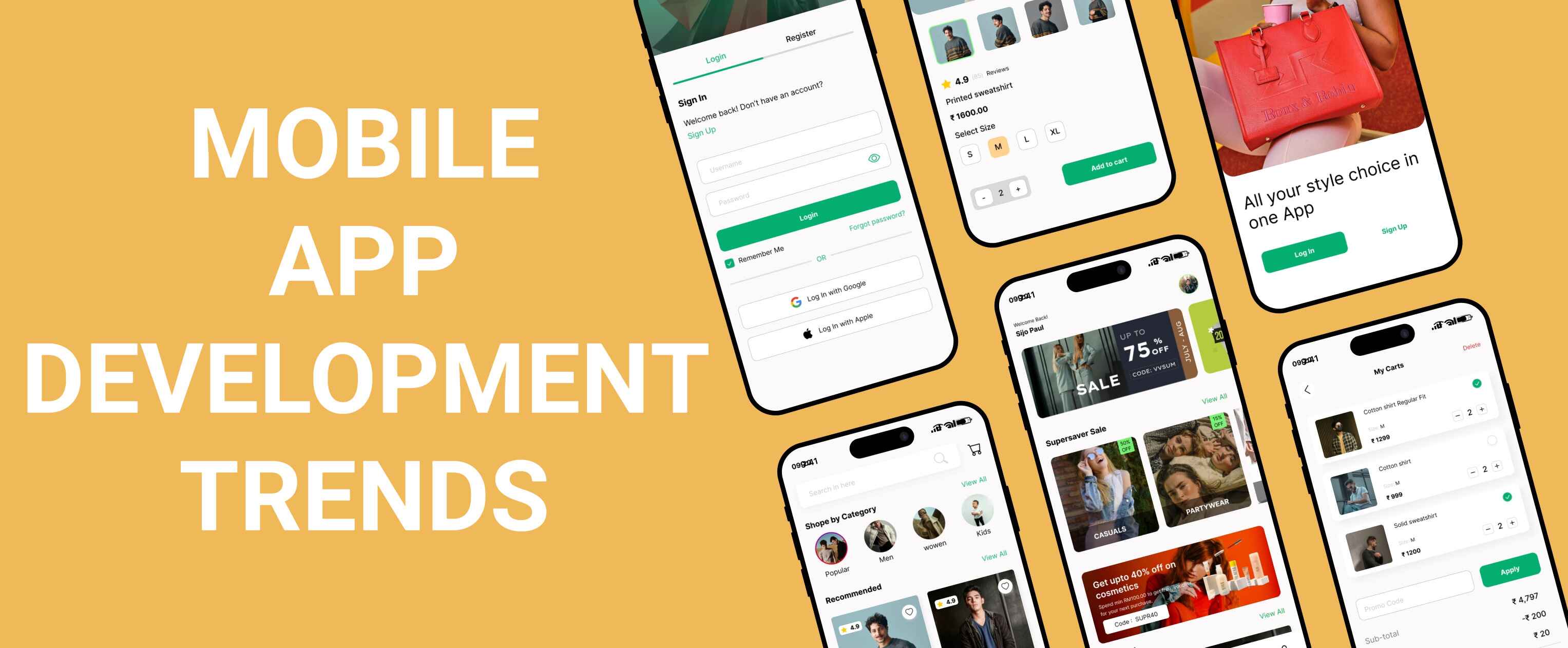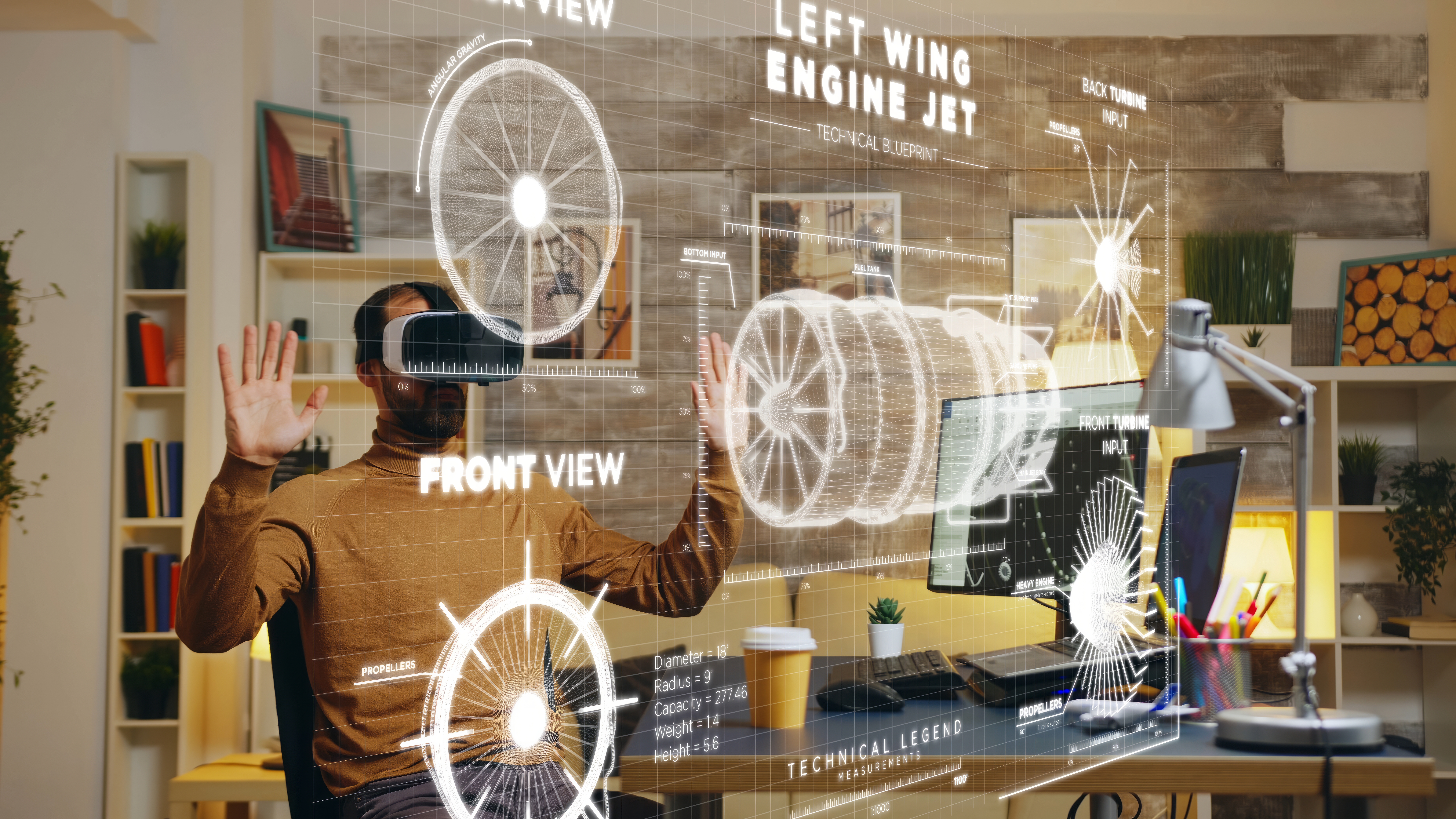What Is the Mobile App Development Trends for the Future 2024

Since its inception in the early 1970s with the introduction of the first mobile phone, mobile app development has undergone numerous transformations, profoundly impacting our daily lives.
The pace of mobile app development shows no signs of abating. Cutting-edge technologies like AI, VR, AR, and blockchain consistently shape the trajectory of mobile app development. Moreover, applications that drive both smartphones and wearable devices often command significant attention.
Top 10 Key Mobile Application Development Trends for the Future
- AI-Enhanced Interactions
- 5G Technology
- AR & VR extend beyond gaming
- Focus on Sustainability
- Enhanced Security Measures
- Health and Wellness Apps
- Edge Computing Technologies
- Priority on Voice Interfaces
- Incorporation of NFTs and Blockchain
- Continued App Store Optimization (ASO)
AI-Enhanced Interactions
Artificial intelligence (AI) and machine learning are poised to become increasingly important in mobile app development. AI-driven apps will provide personalized recommendations, intelligent automation, and improved user engagement. Look out for AI-powered chatbots, voice assistants, and customized content curation tailored to individual user preferences.

Our lives will be facilitated by a myriad of adaptive applications running on different devices, with different sensors, all of them collecting tidbits about everything we do, and feeding big digital brains that can adapt applications to our needs simply because they get to know us.
5G Technology
What's all the excitement about 5G? Well, 5G technology has the potential to revolutionize how people interact with mobile apps. By reducing latency and increasing data-sharing speeds on mobile devices, it will foster the seamless exchange of large volumes of data between apps and services. This will make cloud computing benefits more accessible across various devices. Such advancements could also pave the way for new app markets.
Developers won't just need to keep pace with this data influx; they'll also be vying to pioneer apps that leverage real-time data for creating innovative and more practical solutions.

AR & VR extend beyond gaming
Augmented reality (AR) overlays artificial images and objects onto real-life surroundings, enabling users to engage in experiences like playing Pokémon Go while strolling through their neighborhood. Conversely, virtual reality (VR) constructs entirely artificial environments.
Take Meta's Oculus Quest 2, for instance, which offers users the ability to exercise, travel to new destinations, and attend virtual concerts—all within an immersive digital realm accessible from their living rooms. Yet, AR and VR are no longer confined to the realm of gaming. These technologies are rapidly expanding into various industries, such as travel, real estate, and retail.
In the real estate sector, the adoption of AR technology has surged, spurred by an unexpected catalyst: the COVID-19 pandemic. As in-person open houses became impractical due to safety concerns, rapid app development facilitated the emergence of virtual home walk-throughs.
Matterport, a platform specializing in 3D virtual tours, introduced an iOS app in late 2020, enabling home sellers to scan their properties using the LiDAR sensors on their smartphones or tablets. Previously, this capability required expensive camera equipment. According to Redfin, a real estate brokerage, 63% of buyers who participated in virtual walk-throughs in late 2020 ended up making offers on homes they hadn't physically visited. Additionally, monthly views of 3D walk-throughs via the app surged by over 500% since February 2020.
Sustainability Focus
With the rise in environmental consciousness, mobile apps are embracing sustainability practices more than ever. Expect to see eco-friendly features like carbon footprint calculators, recycling guides, and sustainable shopping options becoming standard in mobile applications.
Enhanced Security
With security and privacy in the spotlight, mobile apps will beef up protection measures. Expect to see stronger encryption, biometric authentication, and secure cloud storage to keep user data safe.
Edge Computing
Mobile apps will utilize edge computing to process data closer to its origin. This means faster performance, less delay, and better real-time capabilities.
Health and Wellness Apps
The market for health and wellness apps will expand further, offering a wide range of fitness, mental health, and telemedicine options. These apps will offer personalized health insights and virtual consultations.
Voice-First Interfaces
Voice-controlled interfaces will become more common, allowing users to interact with apps hands-free while doing other tasks like driving or cooking.
NFT and Blockchain Integration
Non-fungible tokens (NFTs) and blockchain technology will find their way into mobile apps, leading to the emergence of NFT marketplaces, blockchain games, and decentralized finance (DeFi) apps.

Continued App Store Optimization (ASO)
With millions of apps competing for attention, developers will focus on improving app visibility through strategies like keyword optimization , attractive visuals, and positive user reviews.
As we move into 2024, mobile apps promise smarter, faster, and more immersive experiences. From AI-driven personalization to the rapid speeds of 5G and the captivating realm of augmented reality, mobile apps are on the brink of exciting advancements. Embracing these trends will offer users, businesses, and developers fresh opportunities for connection, learning, shopping, and entertainment. The future is bright indeed for mobile applications.
